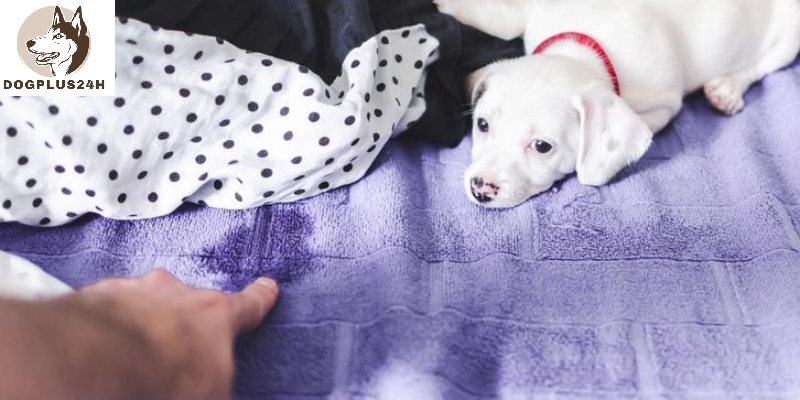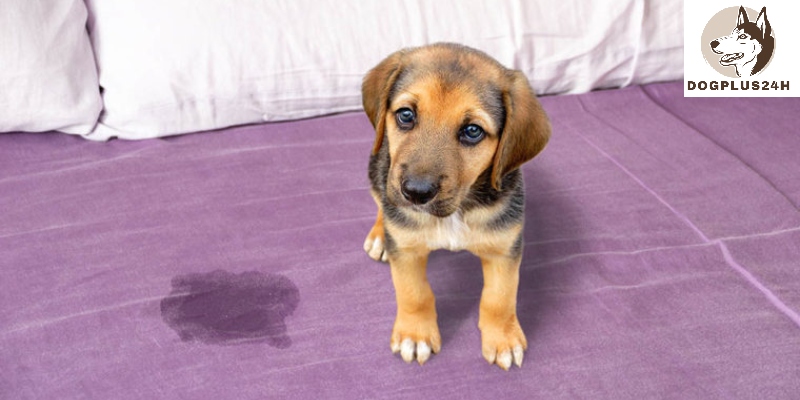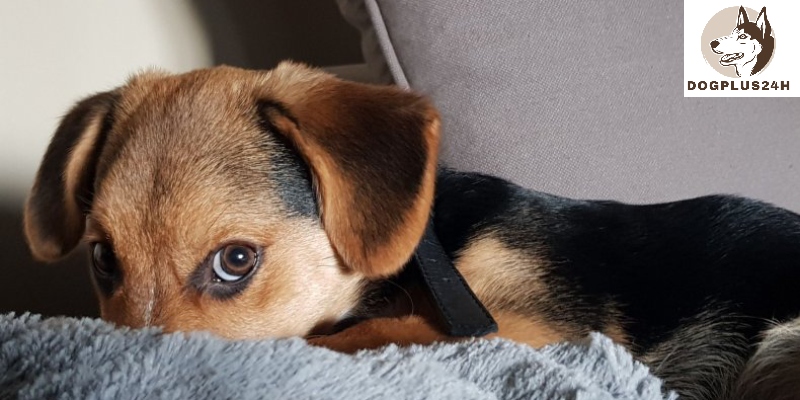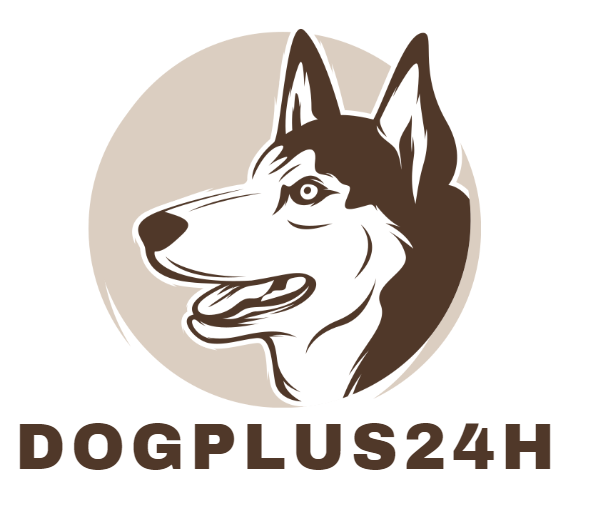Dog wetting bed but not urine can cause confusion and concern because it is unclear what is causing the wetness. Bedwetting is not normal behavior and should be addressed as soon as possible because it is often linked to underlying health problems. In this article, we will learn some causes and solutions for this situation.
Dog wetting bed but not urine: What is the reason?
There are many different reasons why your dog’s bed gets wet. Below are 2 specific reasons.
Non-medical reasons
Dog drooling is a natural occurrence. Excessive drooling, on the other hand, can suggest that something is awry. Excessive drooling can be caused by a variety of factors, including your dog’s anxiousness or dental problems.
Excessive drooling
If your dog drools excessively, it is critical that you take him to the vet. They will be able to identify the source of the problem and address it appropriately. Meanwhile, try to dry your dog’s sleeping place by soaking up any excess drool with absorbent bedding.

Overheating
Dogs like people, can overheat and sweat during the night. If your dog is overheated, he or she may sweat through their paws resulting in soggy bedding. This can give the impression that the dog has wet the bed.
You make sure your dog’s sleeping place is cool and well-ventilated to keep him cool at night. You can also buy a cooling pad to help your dog’s temperature.
Biting and licking a lot
Your dog may lick or bite at anything. It’s possible that your dog is bored and possibly suffering from separation anxiety.
If your dog is hurt, licking and biting may occur. Excessive licking and biting can result in your dog drooling more than usual. As a result of all of this, you may see moist areas.
A wet dream’s outcome
Medical reasons (unrelated or related to urine)
Your dog may be suffering from an illness that is causing the bed to be wet. The wetness can be due to fluid buildup or even urine. Below are some specific reasons.
Ruptured cysts
Your dog could have had a cyst under his fur. If it became large enough and ruptured while your pet was sleeping, the fluid would ooze and fill the bed, causing wet patches.
When you notice him licking anything seriously, it’s time to act. If you don’t stop him, he’ll keep going, which could lead to issues like irritation, bleeding, and infection.
Bladder tumor
If your dog develops an abnormal development in his bladder in the form of a tumor, the bladder’s capacity to store pee will be reduced. This is because the tumor takes up the majority of the available space.
As a result, urine may be driven upwards, resulting in leakage not only at night but also during the day. Urinary incontinence, however, is not the only indication of a bladder tumor. Bloody or stained urine is another symptom.

Bladder hypermobility
When the bladder muscle contracts more frequently, urine may leak involuntarily throughout the day or night. If it occurs during your dog’s bedtime, you may find patches or stains on his bed the next morning.
Urine is the cause of the wet spot in this scenario, but your dog isn’t urinating consciously. This neurological condition could have caused urine incontinence.
Urinary tract infection
A UTI and abrupt urine incontinence can occur if germs enter your dog’s urinary tract. Other symptoms were urination difficulty and a proclivity to lick his genitals.
What should I do if my dog wetting bed but not urine?
If your dog wetting bed but not urine, it’s still important to take action immediately to prevent any further damage.
The first step is to figure out what caused the bed to become wet. This could range from spilled water or saliva to vomit or something else entirely. To begin, remove any bed accessories and check to see if the wet area is still present. If it is, then it is time to act.
Next, if necessary you use a cleanser and a cloth to wipe out the entire bed, including any zippers, buckles, and other small corners. Disinfectants and cleansers containing bleach or chlorhexidine are extremely powerful against germs and bacteria, as well as odors.
Regardless of the source of the dampness, it’s a good idea to wash the bed. Place the bed in the washing machine if it is made of washable fabric. If the bed is not washable, follow the manufacturer’s washing instructions, if they are available. If not, a vacuum cleaner can be used to extract any water and stains from deep inside the layers of the bed.
After cleaning the bed, properly dry it. Because heat drying the bed can promote bacteria growth, it’s best to air-dry it outside in the fresh air. If the weather isn’t cooperating, you can use a fan to speed up the drying process.
Finally, keep an eye on the bed over the next few days to make sure there is no reoccurring moisture. If the bed becomes wet again, it’s important to seek professional assistance, such as an animal behaviorist, to determine the root problem.

How to help your dog stop wetting the bed?
Actually, the answer will depend on the situation, and in this case, there are several possible causes for your dog wetting the bed. So, first and foremost, we must identify the issue. Only then can we properly move on to finding a solution? The following are some common strategies for helping dogs wet the bed.
Medication
Medications that strengthen the muscles and nerves that control urination are occasionally used to treat incontinence. Phenylpropanolamine is one of them.
Surgery
If your dog has bladder stones or a tumor, surgery may be necessary. Sometimes the only method to address bladder problems is to operate on it directly. Incontinence can be resolved over time by repairing bladder pressure or injury.
Lifestyle changes
Making substantial adjustments to your dog’s lifestyle might also help reduce bedwetting. This could be as simple as allowing your dog to urinate outside right before night. To more complicated modifications such as food supplements and opportunities for play and exercise.
FAQs – Dog wetting bed but not urine
Does urine always come with an odor?
Urine containing a high water content and fewer waste components has little or no odor. So, if you smell a damp spot that has no odor, don’t assume it’s not urine. If this is the first time it has happened, wait till it happens again. Determine the possible causes of the moist spot. At the same time, keep an eye on your dog.
Will a dog only wet his bed at night?
In the case of urinary incontinence, the chances of urine leakage are higher at night. This is because when your dog rests, the sphincter muscles relax, allowing for leakage in urine. However, if the dog has a wound or ruptured cysts, you could also find wet spots during the day, especially if he is lying on his bed.
Is it possible to treat bedwetting in dogs?
Some bedwetting problems in dogs are treatable, while others are not. It all comes down to the underlying issues and whether or not there is a viable remedy. In most circumstances, I believe there is something that can be done.
Is it necessary to treat bedwetting in dogs?
Yes, bedwetting is often associated with a serious underlying health condition and should be treated seriously. As quickly as possible, take your dog to the vet.
In conclusion
In summary, if your dog wetting the bed but not the urine, it’s important to consult a veterinarian to identify any underlying medical conditions and explore appropriate treatment options.
Actually, the answer will depend on the situation, and in this case, there are several possible causes for your dog wetting the bed. So, first and foremost, we must identify the issue. Only then can we properly move on to finding a solution? The following are some common strategies for helping dogs wet the bed.


